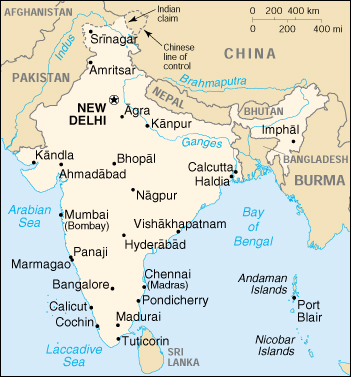

Status Quo Side: India
Non-Status Quo Side: China
Region: South Asia & SW Asia
Conflict Type: Interstate
Issues in Dispute: Territory
Although India in 1954 formally agreed to Chinese control of Tibet, Prime Minister Nehru complained that published Chinese maps showed as Chinese substantial border areas in the Northeast Frontier Agency (NFA) area and Ladakh.
Peking protested the presence of Indian troops in contested areas. Further incidents evoked a Chinese denial that borders, including the McMahon Line, had ever been formalized. In the critical atmosphere following the 1959 Tibetan uprisings, Nehru disclosed Chinese intrusions and announced a military build-up. In June 1962 the 1954 Sino-Indian Agreement including Panchsheel (five principles of peace) was allowed to lapse.
A skirmish between an Indian outpost and a Chinese patrol was followed by heavier attacks and further Chinese incursions. On October 26 India proclaimed a state of emergency. The US and UK sent arms, Moscow remained neutral. Mediation by Egyptian President Gamal Abdel Nasser having failed, six neutrals met at Colombo to prepare a joint approach. China was soon in a position to seal off Tibet on a line approximating prior claims.
China announced a cease-fire. The Colombo Proposals did not lead to formal agreement.
During the 1965 India-Pakistan war, China revived the border issue [see INP]. After eight rounds of talks without agreement on India's claim to 14,500 square miles of land held by China in Ladakh, and China's claim to 34,000 square miles held by India, the two countries announced, at the end of Prime Minister Rajiv Ghandi's 1988 visit to China, the establishment of a joint working group to resolve the dispute. In July 1992 border trade was resumed after thirty years. In August 1995 it was agreed to pull back troops from four points on the north east border where rival troops had been only 50 yards apart. Both parties appeared willing to maintain the status quo without resolution of the border issues. In November 1996 the two countries agreed to mutual troop withdrawals and pledged mutual non-aggression. But Indian concern with Chinese arming of Pakistan was a major factor in deciding in May 1998 to conduct nuclear weapons tests aimed at deterring China and gaining world respect.